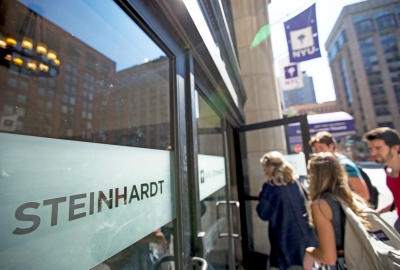Students pursuing careers in music creation — songwriters, composers, instrumentalists, vocalists, engineers, producers, and others — need to be well-versed in the myriad ways they can protect and maximize the rights, revenue streams, and professional relationships that flow from their work. As music marketplace opportunities and distribution channels widen and diversify, music creators have far greater choices than ever before. Students explore the essential elements required to build a career and a life in music, examining them from the creator’s perspective.
Course #
MPATC-UE 1156
Credits
2
Department
Music and Performing Arts Professions


